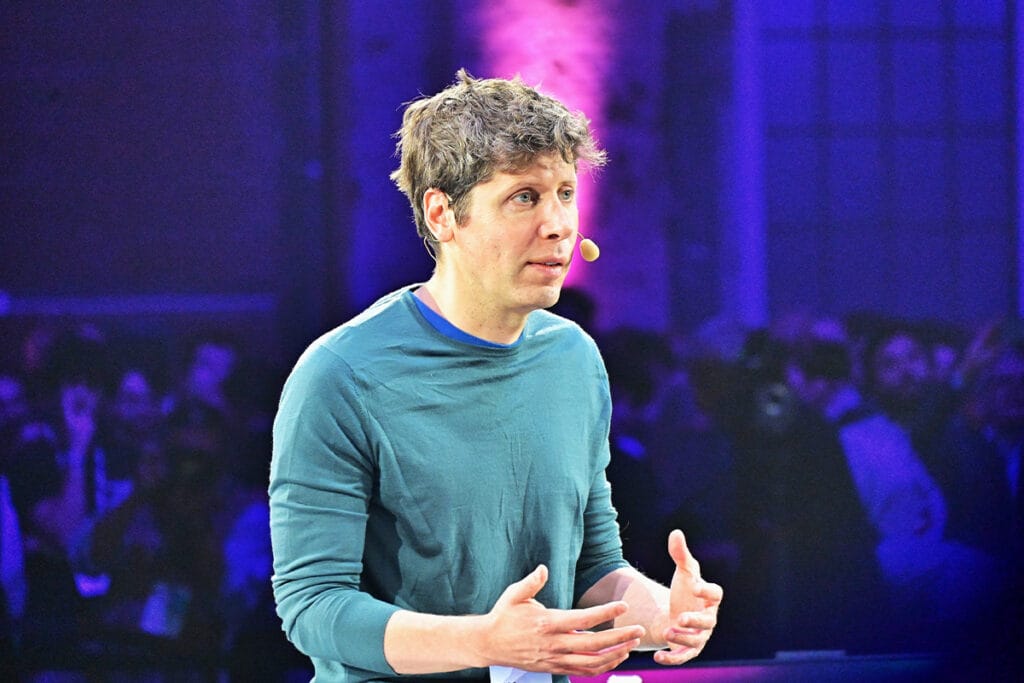[ad_1]
Collaboration with Retro Bio reportedly boosts mobile reprogramming effectiveness by way of AI-proposed tweaks to Yamanaka elements.
Synthetic intelligence large OpenAI has made its first foray into organic information and scientific analysis with the event of a brand new AI mannequin referred to as GPT-4b micro. And it simply so occurs that the primary software of the mannequin is within the discipline of longevity science…
In line with a narrative in MIT Technology Review, GPT-4b micro is a brand new language mannequin particularly designed for protein engineering. In contrast to Google’s AlphaFold, which predicts protein shapes, GPT-4b micro focuses on re-engineering proteins to boost their capabilities.
GPT-4b micro’s preliminary deal with longevity focus is not any coincidence; the mannequin was created in collaboration with longevity biotech Retro Biosciences – an organization backed to the tune of $180 million by none aside from OpenAI founder Sam Altman.
With the objective of including 10 years to wholesome human lifespan via the event of antiaging therapeutics, Retro Bio is targeted on utilizing cell transcriptomics to focus on a number of mechanisms of ageing, stop age-related illnesses, and prolong lifespan. The corporate is constructing on Professor Shinya Yamanaka’s Nobel Prize profitable discovery that an grownup cell might be reverted again into an embryonic stem cell by exposing them to a key group of protein transcription elements, now generally known as the Yamanaka factors.
50-fold Yamanaka increase
Retro Bio and OpenAI researchers reportedly used GPT-4b micro’s solutions to switch two of the Yamanaka elements, leading to a greater than 50-fold improve in effectiveness, primarily based on preliminary measures. The outcomes are anticipated to be revealed in the end, however longevity watchers are already buzzing with pleasure concerning the potential implications for the sector.
Foresight Institute CEO Allison Duettmann, applauded the 2 firms in a post on X, including: “Lastly, AI for science is absolutely rolling in; glad it’s occurring early for longevity!”
AI commentator David Shapiro hailed the information in a post on X, stating: “OpenAI isn’t simply constructing one other AI mannequin right here – they’re laying the groundwork for a whole revolution in drugs. And the perfect half? We’re simply getting began. That is model one among a micro mannequin, and it’s already outperforming human specialists by 50x. Think about the place we’ll be in 5 years.”
Additionally commenting on the information in a post on X, Yuri Deigin, founding father of mobile reprogramming biotech YouthBio Therapeutics, sought to mood the joy a bit of, saying that “the actual objective is to not enhance Yamanaka elements however the reverse — to seek out novel elements that may rejuvenate cells just like the Yamanaka ones however really maintain the cells’ identification relatively than reprogram them.”
Others made the purpose that the information highlights the disparity between AI-driven advances in science and our present healthcare mannequin.
In a post on LinkedIn, Dr Hilary Lin, founding father of longevity drugs firm Livora Well being, mentioned the information was a “wake-up name for healthcare that exposes a rising downside: our system is constructed for treating illness, not extending healthspan.”
“2025 must be the yr healthcare leaders, policymakers, and clinicians have critical conversations about restructuring our programs for this new paradigm,” she added. “We are able to’t maintain practising Twentieth-century drugs in an period of AI-driven longevity breakthroughs.”
READ MORE: Our exclusive interview with Retro Bio CEO Joe Betts-LaCroix.
{Photograph}: Antonello Marangi/Shutterstock
[ad_2]
Source link


